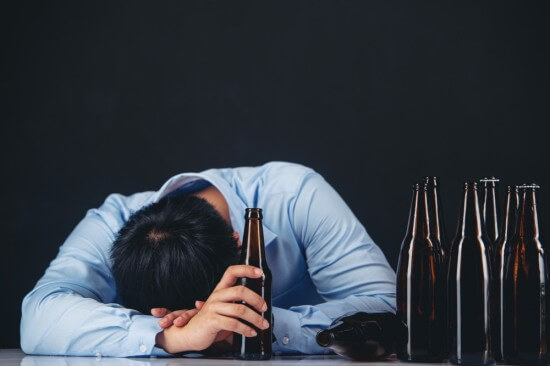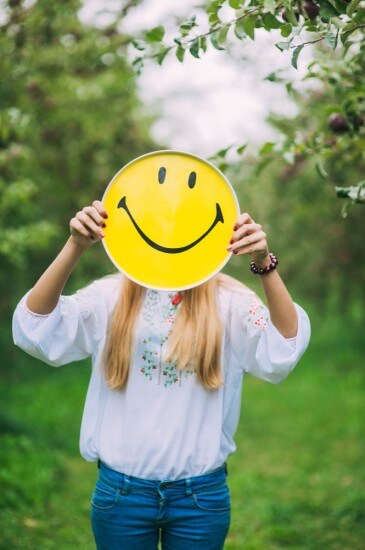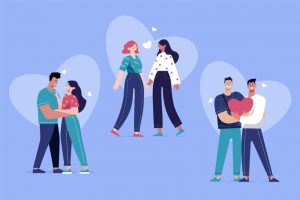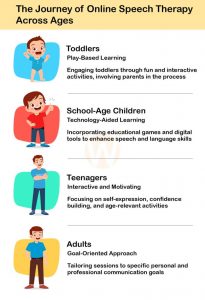Social Impact of Stress
By Prapoorna M
Last Updated: November 27, 2021
Stress is basically a reaction to changing and demanding environment. Having too much of pressure built up about something in your mind, leads to stress which can be related to work, home or may be from personal aspects. It could also be the combination of many. It was found that at least one out of five people experience stress which is actually high levels of negative stress stretching at least 15 days or more per month. This negative stress or distress impacts our lives in many different ways such as physically, socially, psychologically with high affect.
The defense mechanism of our body produces some byproducts for the stress hormones, which can act as sedatives to calm down the body. The amount of these byproducts get increased, when the stress becomes chronic, making the person fatigued. So, the more the amount of byproducts the calmer and inactive the body will be. Which means, under chronic stress, these contribute to a sustained feeling of low energy or depression. The thought of experiencing distress itself creates a sense of depression.
Social Support
It is researched and found that Social support is highly important for a person to deal with stress. Having good social support, which means having great relationships with friends, family and acquaintances, is an excellent stress buffer. The negative effect of stress hormones gets reduced with good interpersonal relationships.
Oxytocin, the fondly called happy hormone gets released in generous amounts when an individual has secured and comfortable social support around him. The release of oxytocin decreases anxiety levels and stimulates parasympathetic nervous system calming down responses. Our desires to seek social contacts and increased sense of attachment to the people we like or feel important are all because of these oxytocin levels in our body. Stressed people who have good interpersonal relationships, receive an oxytocin boost which helps them feel less anxious and more confident in their ability to cope and more drawn to people, thus perpetuating the positive cycle of social support.

Other stress hormones like vasopressin are balanced out with the oxytocin release which helps in the control of fight-or-flight behavior like aggressive behaviour, focused attention, enhanced arousal and a general increase in sympathetic nervous system functioning. On the contrary, withdrawal from
relationships and avoiding social support, shows the negative impact on stress-affected people, because the body releases vasopressin instead of oxytocin. This leads to having difficult relationships, troublesome family life, struggles with spouse, children, friends and co-workers etc. ending up with becoming more frustrated, isolated and stressed.
It is clearly understood that many people who often experience negative stress don’t have adequate social support. These people may not have assertive skills necessary to feel comfortable for seeking help. With this, they tend to have the symptoms of depression, which leads to withdrawal from social togetherness. This in turn spoils the interpersonal relationships leading to further decrease in the availability of social support. Such people gets isolated which begets further isolation and hence stress builds up which leads to further stress.
Delusions and Hallucinations
Emotional distress and reasoning biases are said to be the main factors for having delusions. Delusions are misapprehensions that makes the person believe that something exists or happens, which never really exists in reality. Whenever a person is highly stressed out in the fear that something unwanted would happen, it might happen that he actually starts believing that it had happened. This actually become intense, leading to unshakable theory or belief in something false and impossible, though it contradicts the reality.
Leading a thrown away life from society leads to insecurity and stress, which could turn into Paranoid delusion. It is a firm belief one has that someone or a group of people are trying to harm oneself. Paranoid delusions are technically known as Persecutory Delusions. Individuals affected with paranoid delusions are often resentful and angry and may even resort to violence in the belief that someone is about to harm them or their loved ones.
Hallucinations can be one of the results of stress. Hallucinations are said to exist when someone feels, hears, tastes, sees or smells things that actually don’t exist outside their mind. Hence everything was imagined in their mind itself. It is usually popular as hearing voices. Hallucinations can make you feel nervous, paranoid and frightened. When a person is too stressed out and ponders over something expecting it to happen, is likely to have hallucinations.
Mood Disorders triggered by stress
Various kinds of mood disorders are also the results of stress. The most common types of mood disorders are
Depression:
Depression is the state of severe mental illness that negatively affects the way how we think, act and behave. Most commonly, when a person is stressed and he finds that the ability and resources that are available to fight the stressors are not helpful, there are high chances that it leads to depression. People having depression seem gloomy, feeling sad and lost all the time. They maintain a melancholic mood and avoid to mingle even with friends and family.
Dysthymia:
People suffering from dysthymia have irritable mood or a chronic depressed mood. This can last for over two years, during which they tend to stay away from their social life. Dysthymia affects a person to lose interest in normal daily activities, feel hopeless, lack productivity, have low self-esteem and an overall feeling of inadequacy. These trigger irritable mood, which ruins the relationships, making the person lonely. Being lonely further triggers the stress. This altogether shows a great negative impact on the social relationships.
Bipolar disorder:
This is also called as Manic depression. There are two types of Bipolar disorder. Bipolar I involves mania and depression, while Bipolar II involves hypomania. Hypomania is similar to mania but the energy levels are not as extreme as for mania. A major life changing situation or a highly stressful scenario can trigger Bipolar symptoms. For example, losing a loved family member, losing a favorite job, having financial troubles etc. are potential enough to trigger such episodes.
The signs of bipolar disorder are such as lack of energy, hopelessness, deep sadness, having suicidal tendencies, having too much sleep or insomnia, feel starving always or not having appetite at all, lack of interest in anything etc. Mostly these symptoms are noticed by others. Bipolar disorders can sometimes be serious. Manic individuals typically show poor judgement and impulsivity and are prone to engaging in risky or dangerous behaviours and activities.
Mania is the condition where a person can be hospitalized, but hypomania is not so severe. Hypomania is the condition when the person is abnormally happy but is not fully elated like manic. When in a manic or hypomanic state, the person tends to experience a decreased need for sleep and racing thoughts which cannot be expressed in words as fast as they occur and heightened distractibility. Needless to say that such symptoms and behaviour affects a person’s social life drastically.
Substance Abuse
Substance abuse is the serious problem of today’s generation. Previously, kids used to get pampered rarely but are subjected to face problems and difficulties, which used to make them grow into stronger individuals facing rejections and difficulties and still growing on their own. But today’s generation are much pampered to extremes and the parents tend to offer whatever they wish, thinking that their children should not face the difficulties they faced. This attitude makes them grow into impatient, ego-centric and arrogant individuals, being unable to bear the rejections and difficulties. So, when life throws a googly, these are the ones to be first bowled by stress. The stress in facing rejections, negative consequences, difficulties in achieving, troublesome careers, financial problems etc. are taking a toll on them, leading to seek instant pleasures to escape the bearings.

Substance abuse like smoking weed, consuming drugs, alcohol consumption, tobacco in-take etc. are all being embraced by them to avoid the feeling of stress. These are in-turn affecting their health, both physically and mentally. Substance abuse also tends the users to keep themselves away from the social life, missing all the real enjoyment in life, while burying themselves in the numbness of sensual pleasures.
Other factors
Social factors of stress and the social life affected by stress, both are not easy to identify. They are actually entangled and keep on raising like in deadlocked mode. Society triggers our stress levels for no reason and if we are not balanced enough to handle it, that will in-turn affect our social life, showing a great impact on our mental balance. Not only the social relationships, but the family gets affected too. The longer the person gets affected by stress, the higher the effect on family relations. Hence stress can
be mentioned as the gateway of major problems. Feeling lost in this vicious circle of stress? Need help to come out? Contact your psychologist for any kind of help on stress-related problems through online counseling, phone counselling, video counselling or offline counselling.
Book your Free Consultation Today
Parent/Caregiver Info:
Client’s Details:
* Error Message









